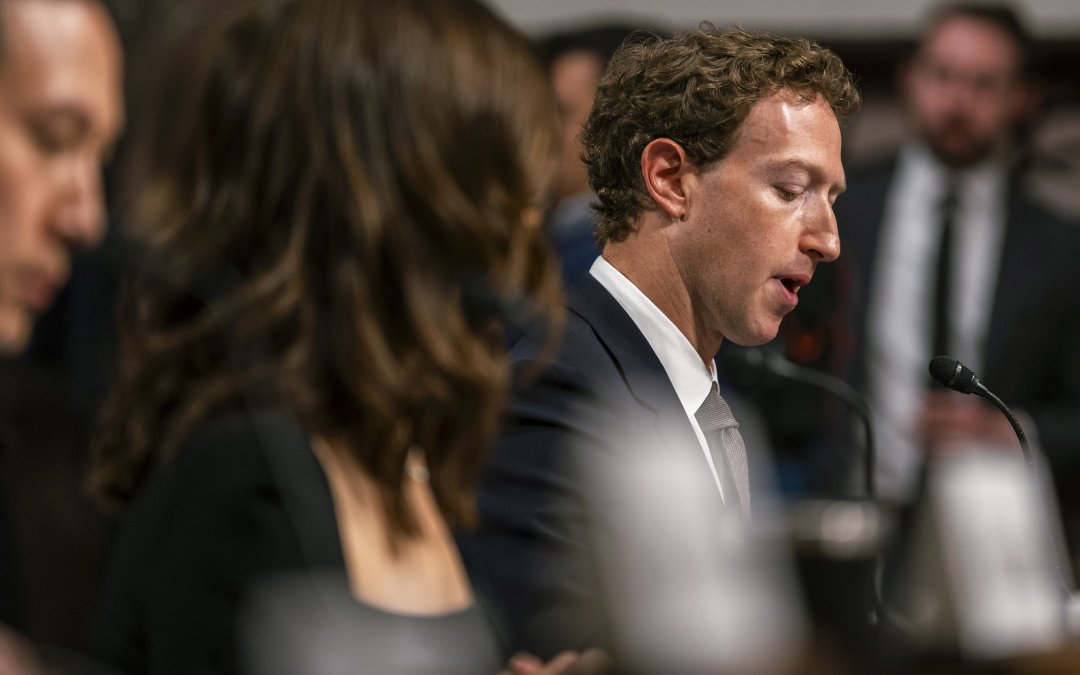WASHINGTON — Lawmakers slammed top executives of large tech companies on Wednesday for not doing enough to prevent online exploitation of children as protesters helped pack the audience sharing victims’ pictures and grim statistics of the problem.
“There is blood on your hands,” Sen. Lindsey Graham (R-S.C.) said to Mark Zuckerberg, CEO of Meta, the parent company of Instagram and Facebook, as the audience erupted in applause. “There is an upside to everything here, but the dark side hasn’t been dealt with.”
The National Center for Missing and Exploited Children said it had received over 32 million reports of suspected child sexual exploitation in 2022 – everything from enticing children to commit sex acts online to sextortion, where people are blackmailed over explicit photos. That is a stark jump from 21.6 million reports in 2020.
To fight this increase, senators have introduced five bills that, collectively, aim to hold social media platforms accountable, improve the system for reporting exploitation, and create better punishments for the spread of such material.
All the company officials said they agreed with such efforts but were divided over whether they supported the measures in their current form. One proposal, the Kids Online Safety Act garnered the biggest split – with Evan Spiegel, the CEO of Snapchat’s parent company, vocally in support but TikTok’s CEO against it.
In the days leading up to the hearing, several platforms made “coincidentally timed” changes, according to Sen. Dick Durbin (D-Ill.), to their policy related to the spread of exploitative material. X, formerly known as Twitter, announced that it was creating a 100-person office in Austin, Texas, to police content, while Meta officials published the company’s legislative “framework” and banned direct messages between minors and people they don’t follow. The parent company of Snapchat also expanded in-app parent tools.
Senators supported these policy updates, but believe that the only way to make any permanent change is to reverse Section 230 – a provision in a law that gives social media companies immunity from actions committed by users on their platforms.
“Nothing is going to change unless we open up the courtroom doors,” said Sen. Amy Klobuchar (D-Minn.).
The audience at the hearing was particularly noticeable. Groups of protesters brought pictures of children who were victims of exploitation. Some wore shirts that said “I’m worth more than $270” – in reference to internal documents from Meta revealing that the lifetime value of a teen on their service is $270.
Joann Bogard, one of the protesters, said she expected that the CEOs would not fully support the current proposed policies, but she was skeptical of whether the head of Snapchat would follow through on his pledge to support a bill if it passed.
“It’ll be interesting to see if he actually does call off the lobbyists and doesn’t lobby against bills like the Kids Online Safety Act,” Bogard told the Medill News Service.
Zuckerberg faced a lot of criticism, with Sen. Richard Blumenthal (D-Conn.) noting that a 2021 internal memo showed that Zuckerberg denied a request to hire a 45- to 84-person engineer team focused on wellbeing and safety on Meta platforms. The team would have cost $50 million, Blumenthal said, in a year that Meta earned $39.4 billion.
Zuckerberg, in his opening remarks, cited a report from the National Academies of Science stating that there was not a causal link between social media and negative mental health outcomes for young people. At one point, he turned to try to apologize to families in the audience but was met with hostile stares.
The support for the five bills is unanimous according to Durbin – a rarity in the closely divided Judiciary Committee. But senators said they needed to act on that bipartisan backing.
“If this doesn’t turn the corner, I don’t know if you can ever turn it,” said Graham.


